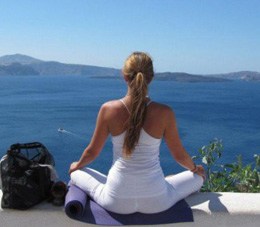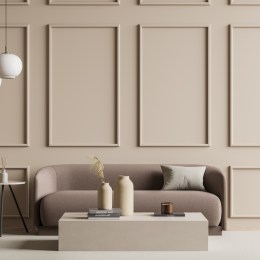“
Relaxation-Induced Anxiety
Have you ever noticed that some clients are better at relaxing than others?
Deep breaths, yoga, and massage, a day at the day spa: While some may find those activities soothing, their mere mention can set other people’s nerves on edge.
It seems like an oxymoron but researchers at the University of Cincinnati have found that so-called relaxing activities can actually increase stress and anxiety in some people.
Christina Luberto is a doctoral candidate in psychology at the University of Cincinnati and has presented research on a concept called Relaxation-Induced Anxiety (RIA). It is precisely what it sounds like: being relaxed triggers anxiety.
Psychologists have known for some time that certain people get stressed just at the thought of relaxation. ‘At first, you see decreased heart rate and decreased breathing, things that indicate relaxation, but after they have achieved a relaxed state, all of a sudden everything just spikes back up.’ Lumberto says.
‘Some people don’t like to relax because of the physical changes, the sensations of their muscles relaxing,’
‘Other people will say they don’t like relaxing because they’re actually worried about whether or not they’re relaxing correctly.’
People can respond or perhaps react to relaxation if 3 different ways
Socially
- ‘I worry that when I let my body relax, I look unattractive.’
- ‘I worry that if I relax, other people will think I’m lazy.’
Cognitively
- ‘I don’t like to relax because I don’t like it when my thoughts slow down.’
- ‘I don’t like to relax because it makes me feel out of control.’
Physically
- ‘It scares me when my breathing becomes deeper.’
- ‘I hate getting massages because of the feeling it creates when my muscles relax.’
RIA has been mentioned sporadically in medical literature since the 1980s, but never as a diagnosis in itself. Luberto looks at it as a disposition. She says about 15 per cent of people have experienced it, and it’s not outside the realm of benefiting from treatment
RIA is different from just being the sort of person who doesn’t find traditionally relaxing things to be relaxing. If things like doing yoga or playing the guitar actually make you feel anxious — but you then feel at ease, say, organising socks — that’s not RIA because you are able to relax, albeit by atypical means. In this model, anything that elicits relaxed physiology (slow heart rate, decreased muscle tone, deep breathing) counts as relaxing. It’s also different from being straight-up unable to ever relax, as in severe chronic anxiety.
In RIA, you are able to relax (by whatever does it for you – massage, cooking, just chilling), but it’s not long before the relaxation triggers anxiety. You briefly enter a parasympathetic (chill) state, but then your heart rate spikes, and your respiratory rate increases, and you feel anxious.
So why does this happen? It varies, widely, but that’s where Luberto’s work comes in. She developed a 21-item self-examination that is supposed to help people with RIA identify exactly what part of relaxation triggers their anxiety. She calls it the Relaxation Sensitivity Index. Treatment could then be tailored based on the responses.
And then, what do you mean by treatment? Luberto made the point that relaxation is often the prescription for anxiety. In this case, it can’t be, at least not in the traditional sense.
She believes people with RIA will benefit from exposure procedures (‘facing their fears,’ in a therapeutic context), which, yes, will involve controlled, supervised relaxation sessions.
Most people relish time away from work or routine and live for vacations but a subset of individuals becomes anxious when they take time away to relax.
This new research may help therapists measure just how much relaxing stresses people and know when to say ‘breathe in” and when to steer clear of relaxation techniques.
Article compiled by Madonna Melrose



